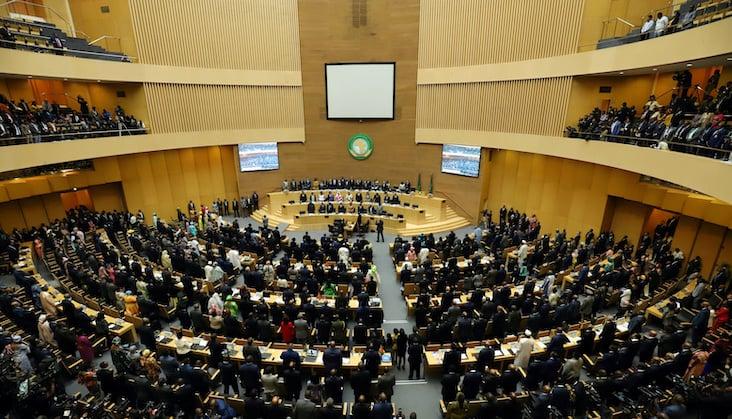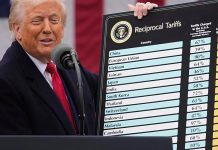Africa-Press – Lesotho. The days of Nelson Mandela, Félix Houphouët-Boigny, Habib Bourguiba, Léopold Sédar Senghor, Thomas Sankara and the like are long behind us.
Africa is utterly lacking in the kind of visionary, upstanding and courageous leaders who are capable of meeting the increasingly complex challenges the continent is facing, while serving as an inspiration to their people.
“We have chosen a different path to achieve better results. We have chosen to establish new techniques.
We have chosen to seek forms of organisation that are better adapted to our civilisation, abruptly and once and for all rejecting all kinds of outside diktats, so that we can create the conditions for a dignity in keeping with our ambitions.
We refuse simple survival. We want to ease pressures, to free our countryside from medieval stagnation or regression. We want to democratise our society, to open up our minds to a universe of collective responsibility, so that we may be bold enough to invent the future.
These words, which resonate with Africans now more than ever, come from an address delivered by Thomas Sankara before the General Assembly of the United Nations on 4 October 1984. He was one of Africa’s last great leaders, along with Nelson Mandela, of course, to have shaped the continent’s recent history.
Sankara, whose popularity was exemplified by the fact that his fellow citizens affectionately called him “the people’s captain”, embodied what a country looks for in a political leader: vision, intelligence, courage, empathy towards the citizenry, audacity and a sense of duty and the greater good.
This kind of leadership is mostly absent today, and Africa isn’t the sole continent affected: the days of Charles de Gaulle (France), Winston Churchill (UK), Lee Kuan Yew (Singapore), Patrice Lumumba (Zaire), Félix Houphouët-Boigny (Côte d’Ivoire), Léopold Sédar Senghor (Senegal), Habib Bourguiba (Tunisia) and Gamal Abdel Nasser (Egypt) are a distant memory.
Let’s be honest. While we are plagued by a global leadership shortage – led by the political vacuum created by or gross incompetence of some of today’s heads of state, including Donald Trump (United States) and Jair Bolsonaro (Brazil) – we have to acknowledge that the world has changed significantly and that being a leader today is much harder.
Having real vision and the courage to implement it simply doesn’t cut it anymore. For starters, the challenges our leaders face are much more complex and difficult.
In the Africa of yesteryear, countries were fighting for independence, the construction of a nation-state, democracy and economic sovereignty – in that order – in a relatively clear-cut global environment. But today, the list of challenges and pitfalls to avoid is enough to send shivers down the spine of the hardiest of leaders.
Against an exceedingly complex backdrop where everything is moving faster and becoming more “transparent”, our world is being refashioned by the impacts of globalisation, the digital revolution, climate change, the burgeoning aspirations of an ever-expanding youth population, the need for the continent to find its place in the world, terrorism, the thirst for change, the growing needs of communities, etc.
The emergence and all-encompassing power of social networks, at once magnifying and distorting our world while serving as a sounding board and people’s court, has created yet another obstacle for our leaders.
Every single move they make, no matter how insignificant, is under public scrutiny, inviting comments and criticism. Last but not least, leadership can no longer be “vertical”.
Paternalism, like old-school management techniques in which the leader was followed by his troops without being second-guessed, is outdated. Nowadays, leaders have to “bring everyone else on board”, be “inspiring” (the latest craze), make things “meaningful”, persuade, explain and justify their decisions.
They also have to think about “well being” on top of growth and development. In short, a leader can no longer say “that’s the way it is and that’s that”, even if they are warranted in saying as much.
While real political leaders – and by that I don’t mean strongmen, autocrats or heads of state in the Arab world – seem to be one of a number of endangered species. Africa needs them more than ever.
There are perhaps a few exceptions to this rule in Rwanda’s Paul Kagame and Morocco’s King Mohammed VI, but both are governing countries with domestic circumstances (the Tutsi genocide for the former and the monarchy for the latter) that are too unusual for them to serve as an example for the rest of the continent.
Sixty years after Africa’s wave of independence, we are, unfortunately, still in the midst of building states and nations that meet the needs of their citizens.
I’m talking about states whose construction is coming up against recurring socio-political crises and whose populations are struggling to adapt to them.
It is also proving difficult to develop a new form of governance (and devolution of power) that everyone can agree on, without which the democratisation process initiated in the 1990s will have a hard time progressing further. To grasp the urgency of the situation, all one has to do is list the number of elections that have been disputed or could be disputed.
Africans are desperately awaiting another kind of leadership, the sort that would eradicate incompetence and mediocrity and thereby create a virtuous circle fostering excellence and efficiency for the benefit of the population.
This would mean a more rational use of the skills that exist – because they do exist – by putting the right men and women in the right positions to achieve the objectives set and see results.
The continent would then no longer be forced to endure short-sighted and unqualified politicians just because they tick all of the usual boxes, i. e. , belonging to the appropriate old boys’ club (as though these connections ensure stability), clan, region or ethnic group, and their allegiance to the head of state.
I’m referring to leaders who do everything in their power to suppress new talent out of fear that said talent could end up replacing them, when the very essence of leadership is about preparing for the future and ensuring that what has been established will outlive the people who created it.
This frantic search for men and women capable of helping Africa meet the enormous challenges it faces is not just limited to the political sphere, however.
It inevitably extends to the corporate world, as only the private sector can absorb the workforce and minds that flood into the labour market every year and is best able to adjust to international competition and do its part to transform our economies or ensure long-term development.
It also encompasses civil society and both our moral and intellectual elites. Everybody shares the same set of goals: As Sankara said: “In these tempestuous times, we cannot leave it to our enemies of the past and of the present to think and to imagine and to create. We also must do so. ” Thirty-three years after his assassination, it is high time we heed his advice.
For More News And Analysis About Lesotho Follow Africa-Press






